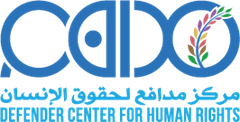Ce site utilise des cookies. En continuant à parcourir ce site, vous acceptez leur utilisation.
Accepter les réglagesMasquer uniquement les notificationsParamètresWe may request cookies to be set on your device. We use cookies to let us know when you visit our websites, how you interact with us, to enrich your user experience, and to customize your relationship with our website.
Click on the different category headings to find out more. You can also change some of your preferences. Note that blocking some types of cookies may impact your experience on our websites and the services we are able to offer.
These cookies are strictly necessary to provide you with services available through our website and to use some of its features.
Because these cookies are strictly necessary to deliver the website, refusing them will have impact how our site functions. You always can block or delete cookies by changing your browser settings and force blocking all cookies on this website. But this will always prompt you to accept/refuse cookies when revisiting our site.
We fully respect if you want to refuse cookies but to avoid asking you again and again kindly allow us to store a cookie for that. You are free to opt out any time or opt in for other cookies to get a better experience. If you refuse cookies we will remove all set cookies in our domain.
We provide you with a list of stored cookies on your computer in our domain so you can check what we stored. Due to security reasons we are not able to show or modify cookies from other domains. You can check these in your browser security settings.
We also use different external services like Google Webfonts, Google Maps, and external Video providers. Since these providers may collect personal data like your IP address we allow you to block them here. Please be aware that this might heavily reduce the functionality and appearance of our site. Changes will take effect once you reload the page.
Google Webfont Settings:
Google Map Settings:
Google reCaptcha Settings:
Vimeo and Youtube video embeds:
You can read about our cookies and privacy settings in detail on our Privacy Policy Page.
Politique de confidentialité
Libya’s Migrant Crisis: Legal, Human Rights, and Societal Challenges
StudiesBrief Report on the Situation of Human Rights in Libya 2024
ReportsLibya: 3,500 displaced people from Tawergha remain homeless, without solutions guaranteeing humane housing
StatementsInternational and Arab failure to prevent the annihilation of the Palestinian people must end
StatementsAccountability Action Group calls for an independent international inquiry into the catastrophe in Derna and east Libya
StatementsWe Call for immediate disclosure of the conditions of detainees in Qirnada prisons after Hurricane Daniel and the provision of immediate assistance to the affected
StatementsThe influence of the prevailing value system on laws with a legal philosophy, “A draft law to protect women from violence” as a model
StudiesJOINT STATEMENT – Libya: Security chaos and systematic armed intimidation of workforce in judicial facilities further undermines the role of the judiciary in restoring the rule of law and monitoring elections
StatementsOn World Refugee Day – Libyan Authorities arbitrarily detain Hundreds of Refugees and Asylum Seekers in Inhumane Conditions
StatementsResearch paper : Freedom of the Press in Libya: A Long Way to Go
StudiesJoint Statement: Crimes against migrants and refugees continue in Libya in latest mass expulsion
StatementsThe UN Independent Fact-Finding Mission on Libya – FFM Challenges, achievements and the way forward
Studies